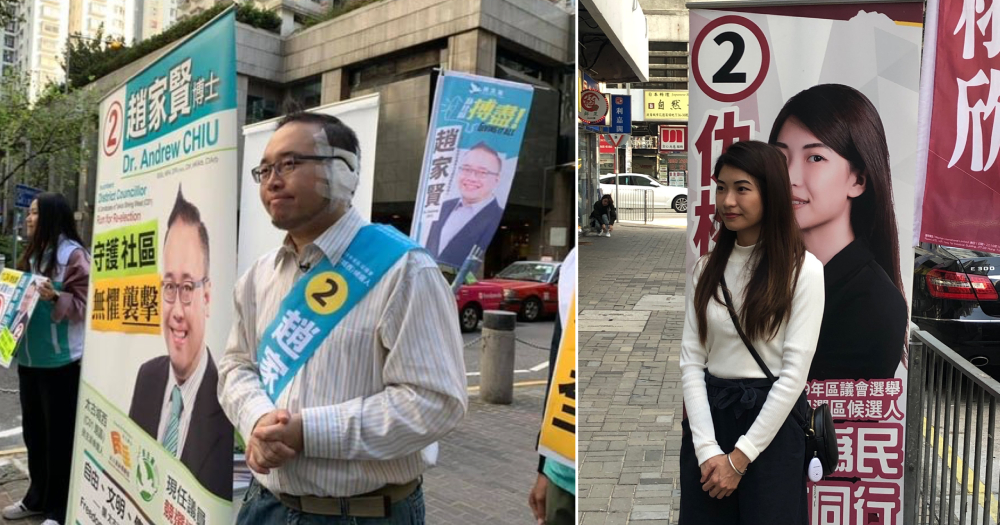Pro-democracy candidates in Hong Kong recently scored a landslide victory in the district council elections.
Many experienced politicians were replaced by a group of newcomers, who took control of 17 out of 18 districts when they previously held no majority in any.
Local election candidate Janelle Leung, 25, was attacked while campaigning.
— Jerome Taylor (@JeromeTaylor) October 25, 2019
She told us she now avoids campaigning or walking alone. pic.twitter.com/wjNgcCxBig
But what are the roles of district councillors, and what weight do these local elections hold?
Here are the answers to the questions after the resounding victory of the pro-democracy candidates in the Chinese Special Administrative Region.
What are district councils?
District councils are local consultative bodies that advise the government on neighbourhood issues such as the use of public facilities, and the use of public funds for public works and community programmes.
The issues they work on include the location of bus stops and noise pollution.
How much do district councillors earn?
According to SCMP, district councillors are paid HK$32,150 (S$5,600) monthly.
But whether they work on the job full-time, or just on a part-time basis, they get paid the same, Hong Kong Free Press reported.
https://twitter.com/ray_slowbeat/status/1198685763396755456
Are the local elections significant in any way?
Holds political weight potentially
District councillors' powers are limited as they cannot make laws nor allocate public funds.
But while district councillors are not lawmakers, the race is politically significant.
This is because whichever camp snatches up the most seats will gain 117 votes in the 1,200-member election committee that selects the next Chief Executive (CE) in 2022, which the pro-democracy parties already did.
The committee is currently dominated by pro-Beijing groups and business interests.
But as the pro-democracy camp already controls about 400 committee seats, according to Quartz, the latest development is likely to see them having a bigger say over who gets to be the city's next leader.
The current CE Carrie Lam currently faces a record low popularity rating out of all post-colonial CEs.
The pro-democracy parties also managed to snag six of the 70 seats on Hong Kong's Legislative Council, which has wide-ranging powers, including enacting, amending or repealing laws.
Referendum on the protests
The election results were also deemed by pro-democracy figures to be a referendum on Lam's handling of the six-month protests, and shattered the myth that a "silent majority" in Hong Kong support the government instead of the protests, which is perpetuated by both Beijing and the government.
Both the record voter turnout and landslide election also showed that more than community issues, voters cared about the political stance of the candidates -- if they are pro-Beijing or pro-democracy -- political scientist Edmund Cheng told the South China Morning Post (SCMP).
Pro-democracy candidate Andrew Chiu, who had his ear bitten off earlier, is surrounded by international media outside Taikoo Shing polling station. The polling station is swamped with a long queue. #HongKongProtests pic.twitter.com/mNWHWygJ0c
— Vivienne Chow (@VivienneChow) November 24, 2019
Related articles:
https://mothership.sg/2019/11/hong-kong-elections-2019/?fbclid=IwAR3610KEgOk2XrVAKvXaN7VgkcIZ3SJ_Ccp1LcAIDDPxa44CvU2T6-rf3jE
Top image adapted via @niccijsmith & @liampohler6
If you like what you read, follow us on Facebook, Instagram, Twitter and Telegram to get the latest updates.
